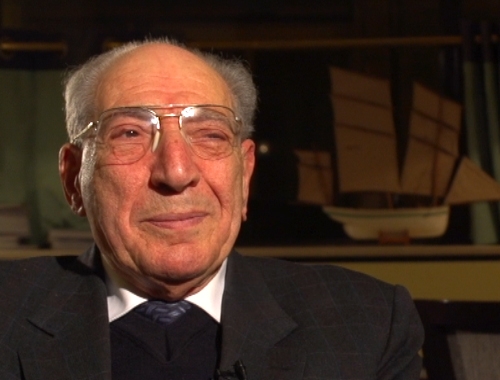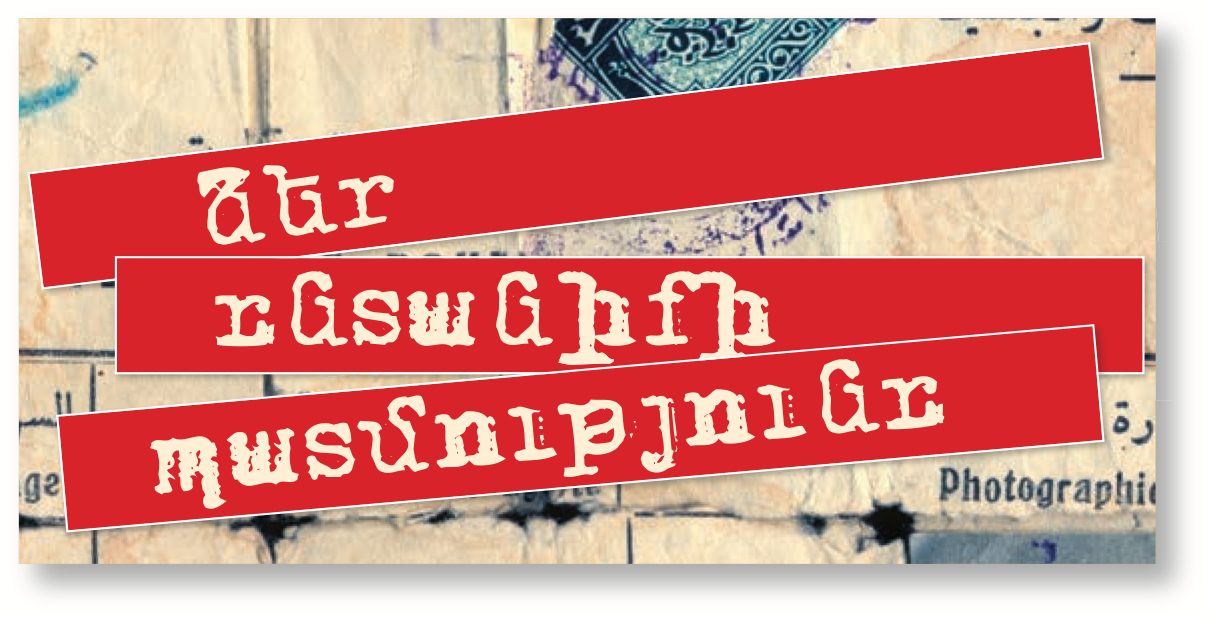 Immigrated from France in 1947
Immigrated from France in 1947
Albert Moskofyan
They propagandized in order to get people to immigrate to Armenia. They exploited our patriotism. We knew that the country had suffered considerably due to the war and that it needed workers. Those who left from here, naturally, couldn’t have known about the conditions that existed in Armenia.
Hardship, hardship. Everything was lacking in a country just coming out of the war. Everything was difficult. Making a living was hard. Manufacturing was destroyed. So was the agriculture. There were no workers. People barely managed to survive. I learnt the meaning of the word “yola” there. (yola gnal – Armenian slang for “surviving”)
In Yerevan, they didn’t give us a house but something resembling a basement. We couldn’t live there. We went to rent a place. There was no alternative. Even the locals had no place to live. There wasn’t a normal apartment to be found.
My parents had no other children. They had no means to live. I had to take care of them.
During the first year, they organized a one-year course near the old kolkhoz market for young people like me to learn some Armenian and Russian.
I passed a competition to get enrolled in the medical institute. I was very lucky. The president of the committee was the anatomy instructor Hakobyan. He said, “You don’t know Russian or Armenian. But if you pass the other subjects you’ll be accepted.” I passed the physics and chemistry exams and was accepted at the medical institute. I graduated in 1954 with honors.
I started to work in Leninakan as a pathologist-anatomist. Later, I returned to Armenia. I was married. We lived in a suburb of Yerevan, near the plaster factory in Tokhmakh. I worked at the medical institute and the physicians’ training institute as a pathologist-anatomist and an instructor-aspirant.
We weren’t deported. But one morning, I believe it was 1949, we awoke to a strange sound in the street. We found out that one of our neighbors, a tailor, along with his wife and children, had been deported. We never found out why. I believe they returned in 1956-1957.
There was discrimination towards us, the others. The Academy of Sciences had created a cardio-biology division; a bio-laboratory. I applied and gave the exams. There were no competitors. Some three months later I finally asked what the results were. The official said given that I was born in France and was initially educated in the French system, I couldn’t be accepted at the academy. I replied that they could have told me that I can’t work there right from the beginning.
Every time tried to launch scientific work in the medical institute’s pathology-anatomy department, some problem came up. That’s OK. I didn’t die, I lived, I survived.
Luckily, my work was such that I was able to earn a one and a half salary. In addition, I was able to set up a medical lab, including blood testing, in my house in order to make some extra money to raise my family. My salary wasn’t enough.
I was successful. I didn’t steal or take bribes. Everyone knew that I provided blood tests and other exams in the evenings at my house. I was able to live without being in debt to anyone.
One time, department head Aleksandr Grigoryan said that everybody was stealing. I said, “I also am stealing.” “Yes, yes. What do you steal?” “I steal my vacation time,” I replied. I didn’t hide the truth. I openly said that I work and eat. Of course, to the extent, that it wouldn’t create hardship for people. Like me, they too were living difficult lives. I couldn’t take advantage of the situation and get rich on their behalf. I was able to help my family a bit. Did we get rich? No, we stayed alive.
We returned to France in 1966 and I started my medical work anew.



















